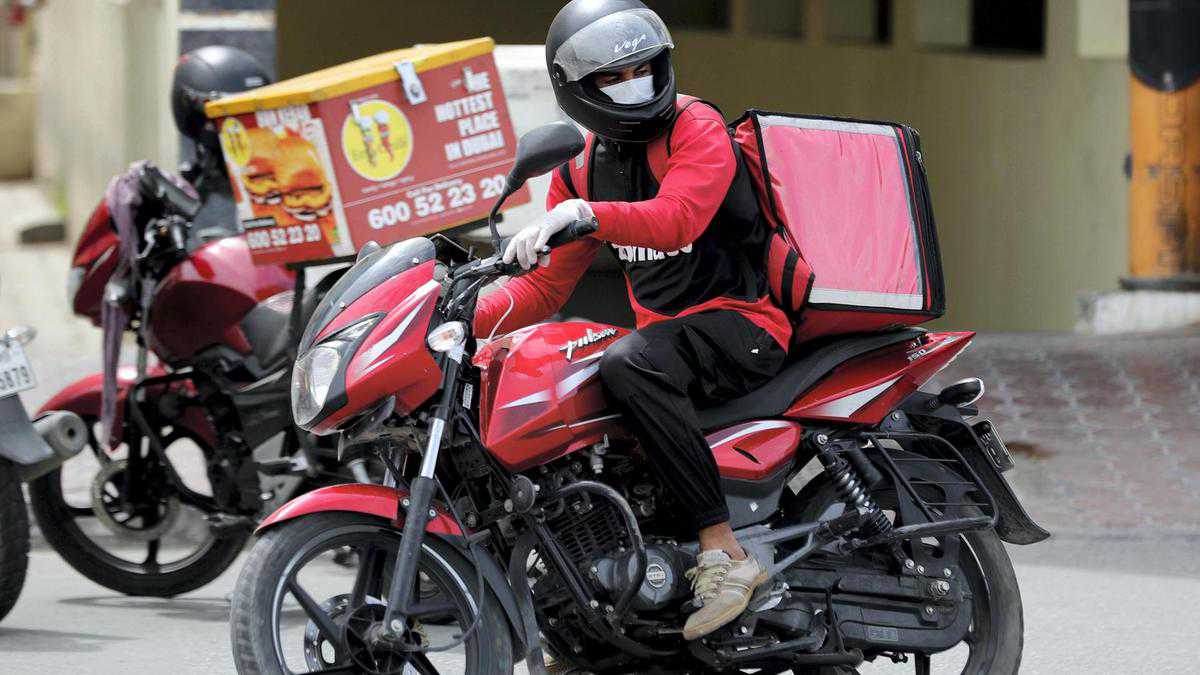Too large a bite? Dubai restaurants say delivery programs must reduce their charges
22 April, 2020

With the restrictions taken up to combat the coronavirus pandemic, restaurants across Dubai fear closure if delivery application commissions aren't slashed, and other measures taken.
However, that argument has hit a stalemate as restaurant aggregators such as Talabat argue that they too have a business model to safeguard, and cannot cut commissions, "not temporarily".
With restaurants in Dubai moving to a delivery-only model, all revenue from dine-in patrons has been destroyed, meaning that if indeed they don't have their own drivers, they are actually prone to pay commissions around 25 to 35 % on every order to delivery platforms.
Asking businesses to voluntarily decrease their revenues to get other businesses in the supply chain does not make business sense, it simply shifts the problem
Talabat leader Tomaso Rodrigues
Although it is standard practice for third-party services to take a cut of restaurant orders, along with the delivery cost charged, restaurateurs have spent weeks contacting them to revisit their percentages.
The National has spoken to the owners greater than a dozen restaurants in Dubai and Abu Dhabi. Normally, most say they are making about one-quarter to half of their usual revenue, and say commissions from aggregators and the expectation to provide discounts could shut them down permanently.
'More than 95 % of our earnings is gone'
Punit Achria may be the director of two Dubai concepts - Barbecue Delights, which has four outlets, and My Shawarma, which has three. Only 1 Barbecue Delights outlet is currently open, in Motor City, and two branches of My Shawarma.
Achria is currently only taking about 40 orders per day in one outlet, when compared to 120 on average he'd usually do. Across seven outlets, that's roughly 120 of a usual total of 840 orders.
Commissions paid to the likes of Deliveroo, Zomato, Uber Eats, Careem Now and Talabat then come off each of those orders.
Falling revenues were further hampered by a fall in deliveries, with many people staying at home having additional time to cook and less disposable income.
As a way to offset the heavy losses, Achria has already established to send most staff on leave.
"What else can we do? We hope to bring them back following this ends, but we aren't expecting it to for at least another 8 weeks... and we'll be feeling these losses for at least half a year after that."
Stories such as for example Achria's are normal in the UAE restaurant community at present.
At the extreme end, there are those such as Hadi Al Hakim, owner of Tony Roma's steakhouse, which includes outlets over the UAE, who says dine-in customers made up 90 per cent of their business. Of the rest of the 10 % of revenue that originated from deliveries, it has now dropped by about 60 %, leaving them with 4 % of their total revenue.
Frequently we spend a lot more than using the sale price to fulfil an order
George Ninan, Back to Grills
Or those such as for example George Ninan, owner of brand Back again to Grills, who has both a restaurant and a separate delivery-only cloud kitchen in Dubai. Similarly, his dine-in sales usually made up 60 % of the business for the restaurant.
"The delivery proposition through the aggregators hasn't been lucrative because over 55 per cent of the total sale price goes into the form of aggregator commission and discounts, which in turn leave nothing for the restaurant operator to cover other expenses," he says.
"Quite often we spend more than using the sale price to fulfil an order."
Across both platforms, Ninan says he would usually do Dh1,200 in orders monthly. While that number is about the same now, a complete insufficient dine in has meant a monthly fall in revenue around Dh70,000.
'We can't even cover our day to day electricity costs'
Sharmili Jagdale's restaurant, The Mumbai Social, opened in Karama just one single week before Dubai moved to a delivery-only model. They are actually getting four to five deliveries per day, which puts their total weekly revenue between Dh2,100 and Dh2,800.
After approaching Zomato and being offered a rate of 28 % commission, he now pays Dh3,500 to an authorized delivery platform monthly for 600 deliveries - a quota he doesn't even come near fulfilling.
What's left, Jagdale says, "doesn't even cover our daily electricity cost".
"If we hand out a huge chunk of our order value, how do we sustain our business?"
In Abu Dhabi, however, pick-up takeaway orders remain permitted until 8pm.
It's a tiny mercy for Victor Paul, manager of Four Buns Burger, who says he usually made more than Dh360,000 in earnings under normal circumstances, including dine-in (Dh130,000), takeaways and deliveries (Dh115,000 each).
Because the pandemic outbreak, he estimates he's making just Dh90,000 between deliveries and takeaways, after commissions. Of the Dh40,000 he has made on deliveries, 27 % of that (Dh10,800) has gone to Talabat.
Talabat: 'we cannot and should not undertake this responsibility alone'
The National approached all food aggregators in the UAE for comment.
Zomato and Deliveroo declined to answer questions.
Gheed El Makkaoui, General Manager of Careem UAE, says it is not possible for them to reduce their commission any longer than the 15 % discount on the 19 to 25 per cent taken. They offered this in March.
"This crisis has not been easy on the economy or the general public which is one way we can support other home-grown restaurants."
Source: www.thenational.ae
